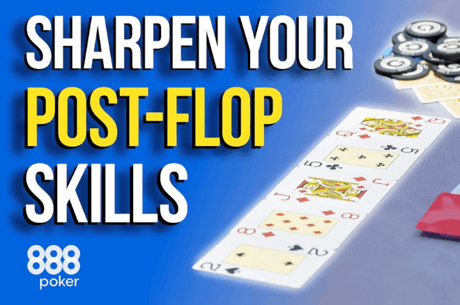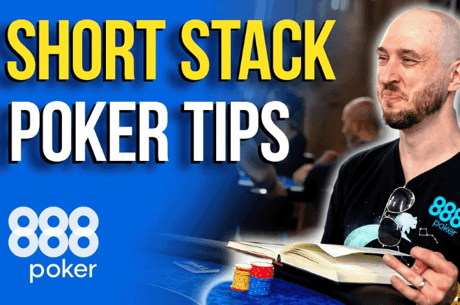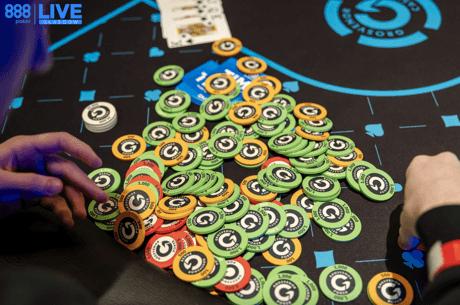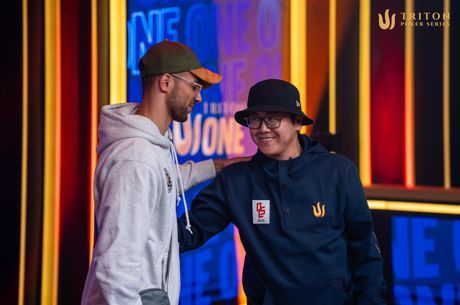Using the Right Tool for the Job

I was recently helping a younger friend wall-mount a flat-screen TV. We needed to screw in a handful of hex-head bolts. He left the room and returned with a crescent wrench.
"You're going to use a crescent wrench to tighten down these bolts?"
"Yeah, I've used it before."
"I've put ketchup on a hot dog when there was no mustard available. That doesn't make it right. You need a ratcheting socket wrench."
I thought about that exchange when I made my first visit to card club in California's Central Valley. It was a small room, but on this Friday night there were three rocking tables of $1/$2 no-limit hold'em going. Life was good.
But the "culture," if you will, of these games was unlike anything I'd ever seen before. They used $2 chips almost exclusively, the minimum buy-in was $40 and the maximum $200. Only one or two people had over $250 on the table and three had less than $100. Shallow stacks, check.
A raise to $15 or even $20 was just an invitation for everybody to jump in and play flop lotto. Gambling, check.
They permitted a straddle to $4 from anywhere — we had a couple of straddles per orbit. Gambling and shallower stacks, check.
Before you read further, I encourage you to stop and think about this poker game. What's the correct strategy for beating it? What would your opening ranges look like? What adjustments to your usual game would you make? I'll wait.
<cue the "Final Jeopardy" theme>
Okay, time's up.
I'll give you a hint: the following was not optimal strategy. Four people limped for $2 in front of me, I made it $20 in the cutoff position with 8♦7♦. The button folded (first challenge level attained). The small blind had a $1 chip in his hand ready to complete the $2 blind. He saw my raise, paused for three nanoseconds, and splashed out $20. Three of the limpers called.
You can't just pull out the same tactics, starting ranges, and game plan every time you sit down.
We had $100 in the pot and I had $180 behind with 8-high. Everything was going perfectly according to plan.
I actually flopped middle pair, but when the small blind shoved for $70 and got a caller, I was done. That gave me plenty of time to give myself a proper talking-to. Sometimes you have to return to your poker roots and think about fundamentals. This was one of those times.
When stacks are shallow, drawing hands plummet in value. Such hands need big implied odds to be profitable and "implied odds" were as far from that game as the Pacific Ocean, a two-hour drive to the west.
Similarly, playing small pairs, hoping to flop a set, would be equally pointless. To make such set mining profitable, you need to be able to win 10-15 times what it costs to see the flop. When the stacks are so shallow, you rarely get the right price to do that.
Indeed, there was one clear path to the chips in this venue: get a couple of big cards, raise a bunch, flop top pair, and get the money in. After rethinking my opening ranges, I raised to $24 with K-J-suited in late position and got the expected three callers. I got a jack-high flop, bet half the pot, one caller. The turn was a brick, I shoved for his remaining $60, he called with J-T, and nothing bad happened on the river.
I booked a loss, but the tacos con pollo with avocado were delicious. And it was a good reminder that you can't just pull out the same tactics, starting ranges, and game plan every time you sit down. Study the game, then pull the right wrench from your tool belt to lock down the money.
One tool to consider: I think there is a way to play small-to-medium pocket pairs profitably in this type of game. Put in a raise that just begs for callers but builds a pot. I'm thinking $10 might be the right number. If you take a flop seven ways, then you've got a $70 pot and are getting very nearly correct odds to set mine right there. And you've built enough of a pot that if you do hit your set, you can get somebody's stack (or a couple of people's stacks) in the middle by the river. Just plan to light a bunch of $10 bills on fire while you're waiting to hit your jackpot.
Back to my TV-installing friend… I made him wait until I went back to the house and got a socket wrench set.
"Man, this is way easier and goes a lot faster."
"Right tool for the job, man."
Lee Jones can help you find the right tool for your poker job. He can even give you a new one or two. Go to leejones.com/coaching and schedule a free coaching consultation. Lee specializes in coaching low-stakes cash game players.
Photo: pxhere, public domain









